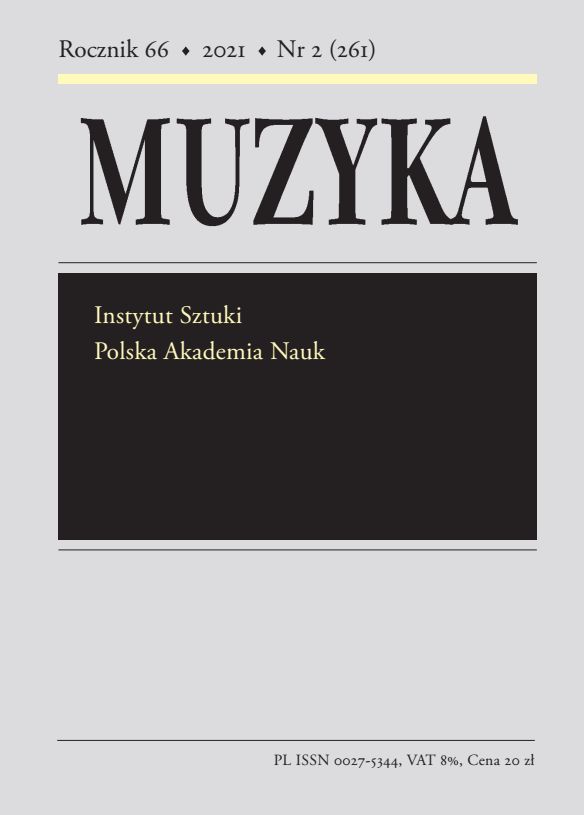O francuskiej recepcji „Tannhäusera” w latach 1845–1861
On the French Reception of ‘Tannhäuser’ (1845–1861)
Author(s): Michał Piotr MrozowickiSubject(s): Theatre, Dance, Performing Arts, Fine Arts / Performing Arts, Music
Published by: Instytut Sztuki Polskiej Akademii Nauk
Keywords: Wagner reception in France; Tannhäuser; history of opera
Summary/Abstract: The subject of this article is the French reception of Tannhäuser, with particular emphasis on various circumstances surrounding the famous Paris production of the work in March 1861 at the Salle Le Peletier, sixteen years after its world premiere in Dresden. The author draws attention to the fact that over those sixteen years, the French could have acquired some knowledge of Wagner’s work and its reception, both enthusiastic (Liszt’s article in Journal des débats of 18 May 1849 and his book ‘Lohengrin’ et ‘Tannhaüser’ de Richard Wagner published in French in Leipzig in 1851) and critical (François-Joseph Fétis’s articles published in Revue et Gazette musicale de Paris between 6 June and 8 August 1852).The performance of the overture to Tannhäuser in a concert given by the Saint Cecilia Society Orchestra on 24 November 1850, although far from ideal, helped to lay the foundations for French Wagnerism.The French premiere of Tannhäuser took place in Strasbourg on 12 July 1855. The work was performed in German by the Cologne opera company directed by Ferdinand Röder. The French papers were rather reticent on the subject.The idea of staging Tannhäuser in Paris arose two years later. In September 1857, in response to proposals from Germany, the composer and impresario Léopold Amat, a former theatre manager of les Bouffes-Parisiens, organised musical and other attractions in Homburg, Ems and Wiesbaden. During the ‘musical festivities’ in Wiesbaden, on 24 September 1857, Richard Wagner’s Tannhäuser was performed to an exclusive audience that included many Parisian journalists invited by the organisers. In hosting numerous representatives of the Parisian press in Wiesbaden and showing them Wagner’s opera, Amat wanted to interest French public opinion in the German composer’s work, hoping that it might subsequently be staged in Paris in the near future. The Parisian journalists were delighted with the musical programme and accompanying attractions, but their impressions of the performance of Tannhäuser, intended as the highlight of the festivities, were less than enthusiastic, as evidenced by the reviews quoted in this article. Consequently, Amat’s projects came to nought.The next part of the article presents events related to Parisian reception of Tannhäuser in 1860 and 1861. The author discusses reviews of the three Wagner concerts held at the Théâtre-Italien – Salle Ventadour in January and February 1860, and especially the opera’s Parisian premiere, addressing such questions as the circumstances surrounding the decision to perform it at the Paris Opera, problems with the French translation of the libretto, Wagner’s relations with the conductor, the orchestra and other members of the Paris Opera’s staff, the three March performances of Tannhäuser, the main causes of its failure and the ambiguous consequences of that failure, as well as press reviews. The article concludes with Baudelaire’s prophetic words announcing the future rehabilitation of Tannhäuser in Paris.
Journal: Muzyka
- Issue Year: 66/2021
- Issue No: 2
- Page Range: 37-72
- Page Count: 36
- Language: Polish

